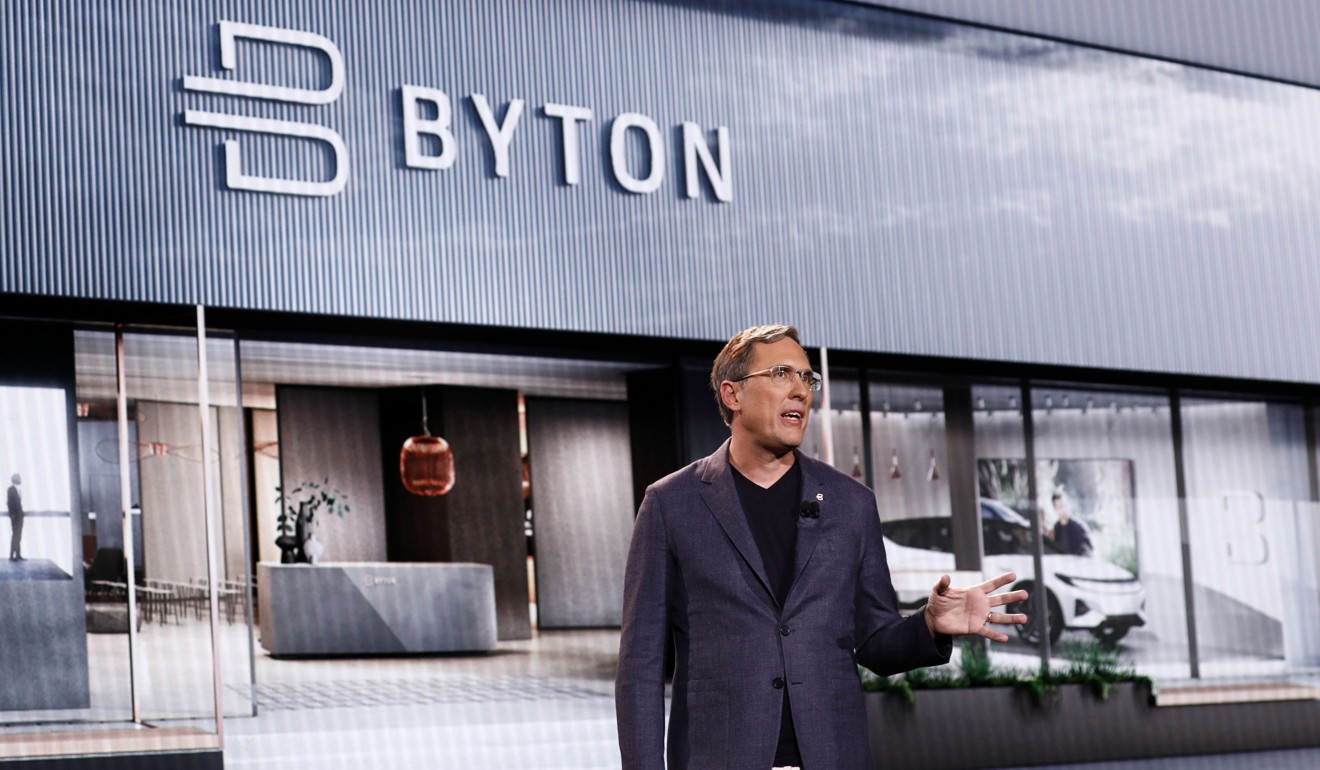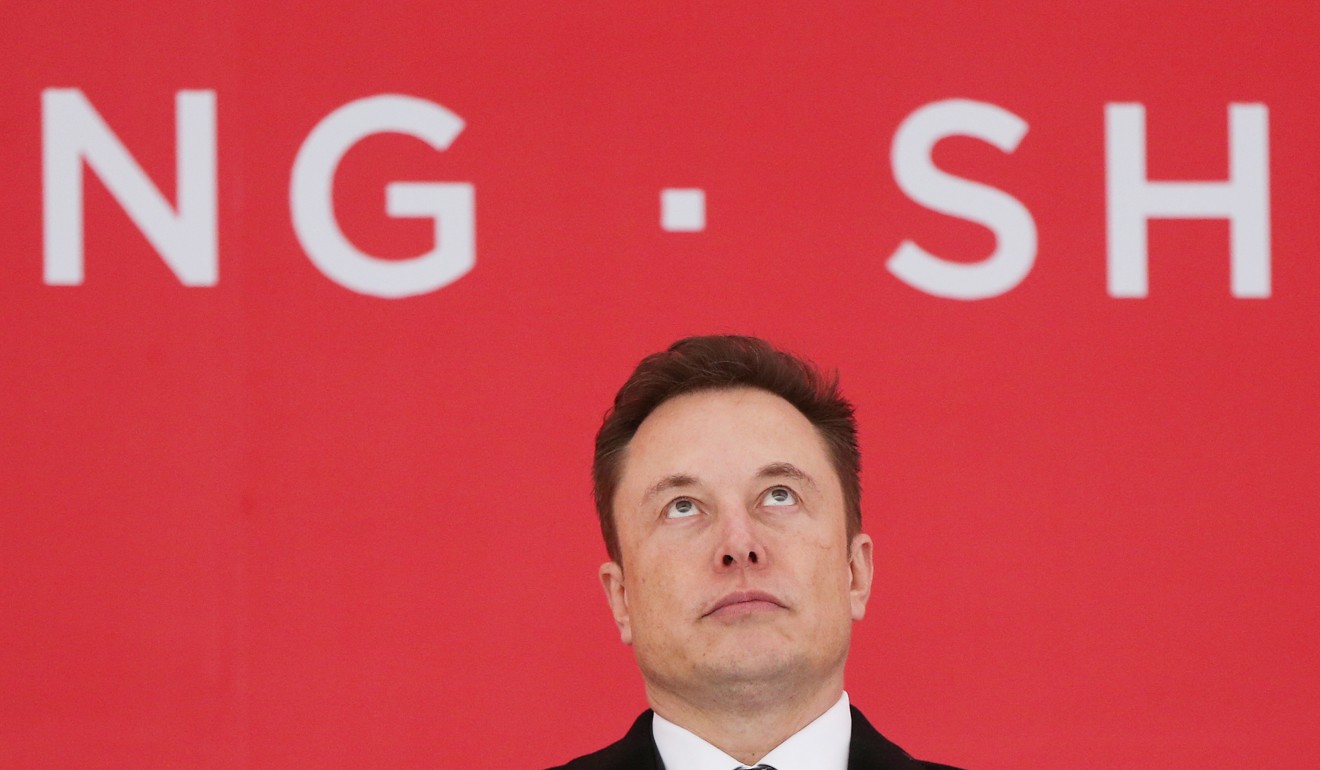
Can China’s electric-car start-up Byton beat Elon Musk’s Tesla?
- Byton sees deliveries beginning at the end of 2019, about the same time that Tesla’s Shanghai plant should start production
Tesla Motors chief executive Elon Musk showed up at a muddy Shanghai industrial suburb earlier this week for the groundbreaking ceremony of the electric carmaker’s first plant in China.
By the end of this year, the first locally assembled Model 3 cars should start rolling off its production line. These vehicles would incur fewer taxes and be more competitive in pricing, reducing the edge that domestic Chinese electric car brands had over the Palo Alto-based company, which has to ship its vehicles from the US to China.
The day after Musk’s appearance in China, one of his would-be competitors stood on stage more than 10,000 kilometres away at the CES trade show in Las Vegas to unveil its first production model. Byton, which has its headquarters in Nanjing, was showing an electric sport utility vehicle named M-Byte.
“What we are trying to offer is not just another electric car model, but a smart device,” Daniel Kirchert, Byton’s co-founder and president, said in an interview on Tuesday when asked to compare the Chinese start-up with Tesla.

While Chinese electric-vehicle start-ups like Byton are striving to topple Tesla, they would probably not have come into existence in the first place if not for Musk, whose ability to upend a decades-old automotive hierarchy in just a few years captured the imagination of China’s leadership.
China sees in connected electric vehicles an opportunity to reduce foreign oil imports and gain parity at last in automaking with established powerhouses like Germany, the US and Japan. It was with that in mind that China issued new car manufacturing permits to companies outside the auto industry, hoping to inject innovation and create a home-grown Tesla.
Against that backdrop, the key to winning the keenly contested market for connected cars is in giving consumers the right smart features and having the imagination of the future of mobility, said Kirchert, a former Infiniti executive.
And Byton believes the answer lies in having more screens.
The M-Byte has not one, not two, but five screens: a 49-inch, edge-to-edge dashboard display, a tablet embedded in the driving steer and a new 8-inch touch screen in the centre console, combined with two more on the headrests for rear-seat passengers.
“So far most models designed by Chinese electric star-ups are closer to Tesla’s solution in terms of a centre control touch screen,” said Kirchert, “but we have leapt further, by taking into full account a self-driving era.”
The company is working with “deep integration” apps including navigation and music that will provide individualised recommendations based on one’s calendar schedule and interest preferences stored on the cloud.
The model will feature Amazon’s Alexa for overseas markets and Baidu’s voice control for China. Similarly, Byton is working with US self-driving start-up Aurora and Baidu on self-driving technology for foreign and local markets, respectively. Deliveries are slated for the end of this year in China, and the cars will feature advanced autonomous driving capabilities.
More than half of the 40,000 reservations it has received are from the US and Europe, Kirchert said.

Even so, Byton’s vehicles would be coming onto the market at about the same time as Tesla’s locally assembled cars, and more than a year after other Chinese EV brands like WM Motor, NIO and Xpeng have begun deliveries.
Its pricing of about US$45,000 is also expected to be in the same range as Tesla’s China-assembled cars. The latter’s imported Model 3 now sells for 499,000 yuan (US$73,000) in the mainland.
Despite being a late mover, Kirchert thinks the timing is just about right.
“The year of 2019 and 2020 will see the take-off of smart electric vehicles in the Chinese market, with more new offers and improved infrastructure,” he said.

